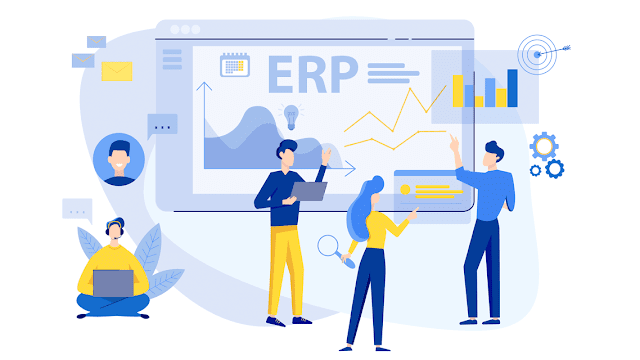The ERP trends That Will Accelerate Throughout 2023!
The landscape of enterprise resource planning is rapidly transforming the way. ERP solutions are becoming more complex as advanced tools and technologies gain acceptance.
Monitoring ERP trends is essential for businesses contemplating digital transformation. Knowing where the market is heading allows you to assess more correctly what form of business software will best meet your demands today and in the future.
Today, we'll look at some of the most exciting ERP improvements. Continue reading to see how these current technologies and techniques may be applied to your organization and how they will transform the ERP Software industry.
What's Ahead For ERP In 2022 & Beyond?
1. Better Cloud-Based ERP Deployments
ERP has been gradually shifting away from on-premise solutions to the cloud for years. While related systems, such as CRM and SCM systems, have been on the cloud for some time, ERP has been moving slower. Vendors are boosting their investments in cloud technology while making these erp systems more accessible to small enterprises. Cloud ERP, with its user-friendly apps and cross-platform capabilities, is making it easier for these enterprises to deploy more innovative technologies in the future.
2. Accessible and mobile-friendly in real-time
Businesses move their erp processes to the cloud and access business information via mobile devices. In contrast, it is not a good idea to put the info on in-house computers, where you must be in the office to view it. Companies, however, require appropriate technologies and resources to access this data. As a result, they're investigating suppliers' mobile capabilities to speed data collecting directly from the source. They're searching for mobile corporate solutions that provide solid offline capabilities, such as data and process synchronization as soon as Wi-Fi is restored.
3. IoT Deployment Under Pressure
In a nutshell, the Internet of Things (IoT) refers to how different gadgets communicate with one another. Businesses may reap various benefits when they invest in device communication. Companies are looking at IoT while they examine ERP systems for the use of the customer experience and to link to other systems, including ones they may build in the future.
4. Increasing Rage of Industry-Specific Solutions
Some businesses only require basic, out-of-the-box ERP features. Some firms need more than one erp solution to accommodate their particular workflows. Many well-known suppliers provide industry-agnostic solutions with core and advanced features. These tailored solutions are frequently more expensive than their generic counterparts, but they can save you money in the future.
5. Prospects for Advanced ERP Intelligence
Artificial intelligence and machine learning are boosting ERP solutions' data analytics capabilities. Executives may use these tools to make better decisions and execute process changes in less time and effort. They may also utilize them to discover red flags and alleviate concerns before they become more serious.
In Summation!
Companies constantly look for innovative ways to incorporate erp technology into their operations. This may imply transferring their installations to the cloud for some. Others are heavily investing in AI, machine learning, and other automation technologies to remain ahead of the competition. Then, as they negotiate their post-pandemic operations, businesses ask for supply chain assistance.
These are just a handful of the ERP trends you should be aware of. To learn more, please contact our erp consulting specialists at Connected IT Consulting.
Your quick consultation is just a tap away!
Business Process Mapping
ERP Project Management
ERP consulting
Small Business ERP




Comments
Post a Comment